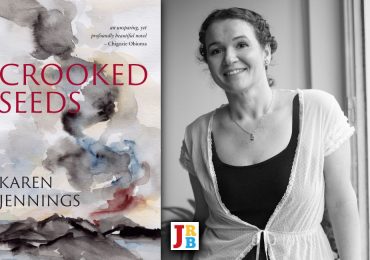Susanna Clarke has been announced as the winner of the 2021 Women’s Prize for Fiction, for her second novel Piranesi.
The award ceremony took place in London, hosted by novelist and Women’s Prize founder director Kate Mosse. 2021 Chair of Judges Bernardine Evaristo presented Clarke with the prize, endowed by an anonymous donor: the ‘Bessie’, a limited edition bronze figurine, which comes with prize money of £30,000 (about R585,000)
Piranesi is Clarke’s first novel in seventeen years, the long-awaited follow-up to her acclaimed 2004 debut Jonathan Strange and Mr Norrell.
Clarke fell ill while promoting her first book, and was eventually diagnosed with chronic fatigue syndrome.
‘As some of you will know, Piranesi was nurtured, written and publicised during a long illness,’ she said after her win.
‘It is the book that I never thought I would get to write. I never thought I’d be well enough. So this feels doubly extraordinary.’
Evaristo said:
‘We wanted to find a book that we’d press into readers’ hands, which would have a lasting impact. With her first novel in seventeen years, Susanna Clarke has given us a truly original, unexpected flight of fancy which melds genres and challenges preconceptions about what books should be. She has created a world beyond our wildest imagination that also tells us something profound about what it is to be human.’
The winner and the other five shortlisted authors also receive a bespoke leather-bound edition of their novel.
On the shortlist this year were The Vanishing Half by Brit Bennett, Unsettled Ground by Claire Fuller, Transcendent Kingdom by Yaa Gyasi, How the One-Armed Sister Sweeps Her House by Cherie Jones and No One is Talking About This by Patricia Lockwood.
The inspiration for the Women’s Prize—previously known as the Baileys Women’s Prize for Fiction and then the Orange Prize for Fiction—came about after the 1991 Booker Prize, when none of the six shortlisted books was by a woman, despite roughly sixty per cent of eligible novels published that year being by women authors. Research showed that women’s literary achievements were often not acknowledged by existing major literary prizes.





